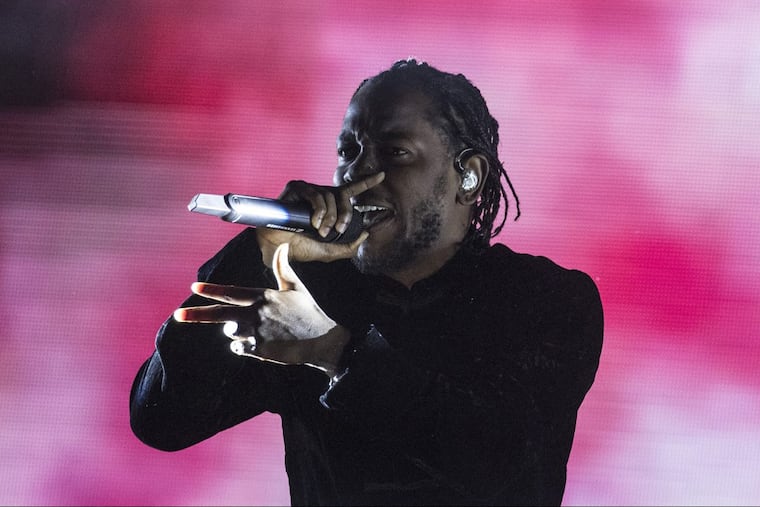Why Kendrick Lamar's Pulitzer Prize matters
The rapper's award for "DAMN." is the first ever given to a non-classical or jazz musician.

Damn!
Kendrick Lamar can't get respect from the Grammys. But the Compton, Calif., rapper has just won a Pulitzer Prize for music.
In 2014, in 2016, and again this year, Lamar was nominated for an album of the year Grammy. Each time, he was beaten out, first by Taylor Swift, next by Daft Punk, and most recently by Bruno Mars, whose 24K Magic topped Lamar's more deserving DAMN.
Those defeats were taken not only as losses for Lamar himself, but also for the hip-hop community at large. In the nearly 40 years since the Sugar Hill Gang's "Rapper's Delight," rap has become an ever more dominant cultural and commercial force, but it has almost always been denied the validation handed out by mainstream gatekeepers.
But have Taylor Swift, Daft Punk, or Bruno Mars ever won a Pulitzer Prize? No, they have not.
And that, in part, is what's so cool about the kudos given out to the rapper born Kendrick Lamar Duckworth.
And it's not just that no rapper has ever won a Pulitzer. No pop music maker has ever won one.
The Pulitzers have long displayed their own bias, making a preference clear for elevated high art rather than the lowly pop culture of the masses. So until this year, the Pulitzer for music had almost always gone to an artist in the classical realm.
Jazz composers were long looked down upon, too — Duke Ellington was famously snubbed in 1965, when no award was given. But in recent decades, some jazz artists have won, with Wynton Marsalis being awarded for his Blood on the Fields classical oratorio in 1997. Saxophonist and composer Henry Threadgill won for In for a Penny, in for a Pound in 2016.
But while Bob Dylan won the Nobel Prize in literature in 2016, neither he nor the Beatles nor Joni Mitchell nor Frank Sinatra nor James Brown nor any other celebrated pop musician has been handed a Pulitzer.
Lamar is a logical and excellent choice to break through for a number of reasons. The Pulitzer board praised the well-respected rapper's DAMN. as "a virtuosic song collection unified by its vernacular authenticity and rhythmic dynamism that offers affecting vignettes capturing the complexity of modern African American life."
The Pulitzers reward excellence in the arts, but at their essence they're journalism awards, about making sense of what goes on in the world at large. Chuck D famously called rap "the black CNN," and Lamar is at once the most popular and most accomplished practitioner of that tradition.
His songs take a clear-eyed look at life on the street, in disparate musical settings, from the jazz-flavored experimentation of 2015's To Pimp a Butterfly to the varied rhythmic approaches (with different producers) on DAMN.
Taken together with the box office dominance of Ryan Coogler's Black Panther (whose soundtrack Lamar scored) and coming two days after Beyonce became the first African American woman to headline Coachella, Lamar's Pulitzer win can be seen as part of a hopeful, heartening trend of artists of color at the peak of their powers gaining recognition on the grandest and most august of stages.
Lamar is a tenacious wordsmith, unparalleled as a rhyme slinger in contemporary hip-hop. And the Pulitzers, of course, are handed out to ink-stained wretches who tell stories with words (and pictures) on the printed or digital page. But maybe the most flattering thing about this award for Lamar is it's not just about the hip-hop artist's flair for language, but his ability to express himself through both words and music.
Speaking to Rolling Stone last year, the 30-year-old Lamar explained that what he was shooting for with DAMN. was a deeply personal project. "It's all pieces of me. My musicality has been driving me since I was 4 years old. It's just pieces of me, man, and how I execute it is the ultimate challenge."